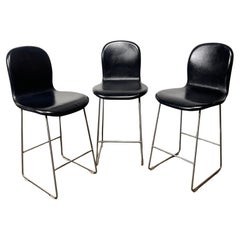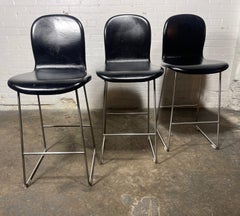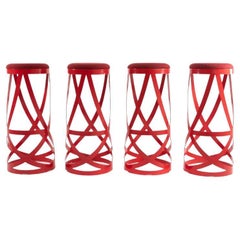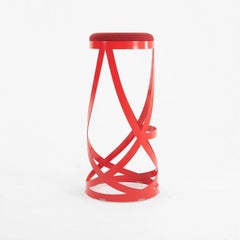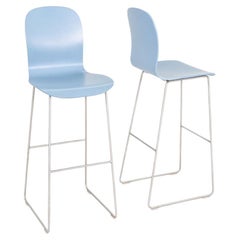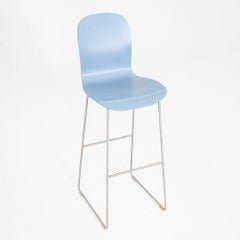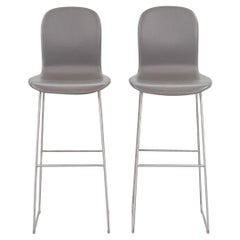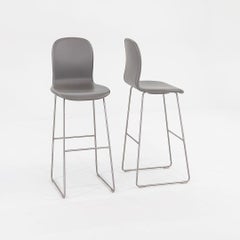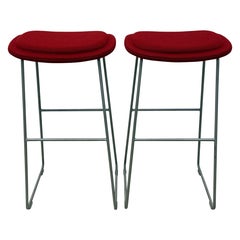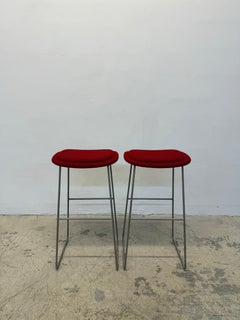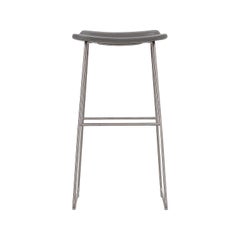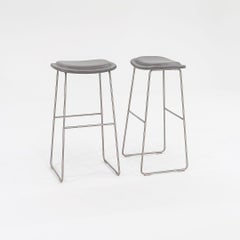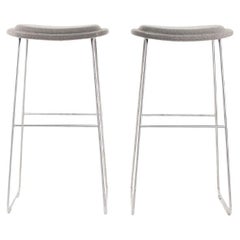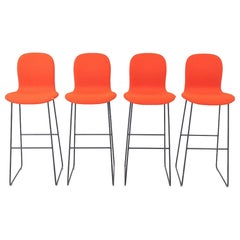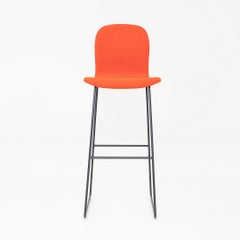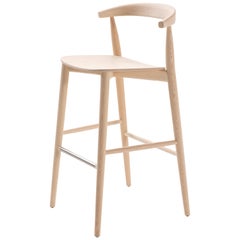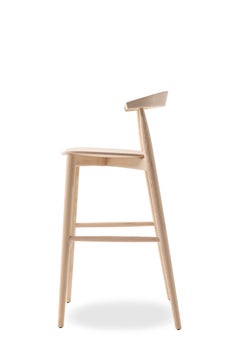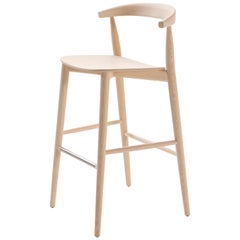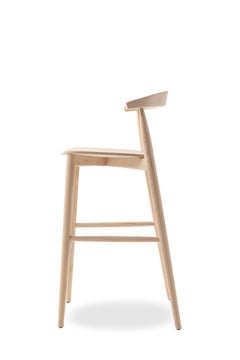Cappellini Bar Stool For Sale on 1stDibs
At 1stDibs, there are many versions of the ideal cappellini bar stool for your home. A cappellini bar stool — often made from
metal,
wood and
beech — can elevate any home. When you’re browsing for the right cappellini bar stool, those designed in
modern styles are of considerable interest. You’ll likely find more than one cappellini bar stool that is appealing in its simplicity, but
Cappellini,
Jasper Morrison and
Stephen Burks produced versions that are worth a look.
How Much is a Cappellini Bar Stool?
Prices for a cappellini bar stool start at $725 and top out at $13,000 with the average selling for $1,373.
Cappellini for sale on 1stDibs
In 1946, at the start of a postwar boom in Europe, Enrico Cappellini opened the doors to a small furniture studio in the Italian town of Carugo. But it wasn’t until his son joined the company nearly three decades later that Cappellini became a powerhouse fixture on the global design stage. Today Cappellini is one of the world’s foremost manufacturers of innovative chairs, tables and decorative objects.
Giulio Cappellini joined the family company in 1977 and, with his appointment, ushered in a stage of boundary-pushing modernism and prolific creativity at Cappellini. With a dual background in architecture and business management, Giulio was well equipped to steer the brand into both innovative design and economic growth in a rapidly globalizing economy.
The second-generation leader’s first major success came in 1981, with the launch of Sistemi, a modular, hyperfunctional storage system that would come to symbolize the chic functionality of Cappellini. That was quickly followed by a collaboration with renowned Japanese designer Shiro Kuramata for the Progetti Compiuti collection, a line that brought unexpected playfulness to the simple framework of a black-and-white cabinet and remains an iconic collectible today.
That first collaboration opened the doors to a prolific output of partnerships, with Cappellini tapping such star designers as Jasper Morrison, Marcel Wanders, Tom Dixon, Ronan and Erwan Bouroullec and Nendo for collections over the ensuing decades that spanned a range of materials and styles. Speaking to this range, Marc Newson’s plumply curvaceous 1988 Embryo chair, Jasper Morrison’s slightly arachnoid 1987 Thinking Man’s chair and Tom Dixon’s sculptural 1991 S-chair — each quite stylistically unique — remain some of the company’s most recognizable pieces, with the latter in the permanent collection of the Museum of Modern Art.
Cappellini, now headquartered in Milan, continues to partner with guest designers across furniture, storage and lighting solutions, though many of its 1970s and ’80s designs remain its most coveted today.
Find vintage Cappellini furniture on 1stDibs.
A Close Look at Modern Furniture
The late 19th and early 20th centuries saw sweeping social change and major scientific advances — both of which contributed to a new aesthetic: modernism. Rejecting the rigidity of Victorian artistic conventions, modernists sought a new means of expression. References to the natural world and ornate classical embellishments gave way to the sleek simplicity of the Machine Age. Architect Philip Johnson characterized the hallmarks of modernism as “machine-like simplicity, smoothness or surface [and] avoidance of ornament.”
Early practitioners of modernist design include the De Stijl (“The Style”) group, founded in the Netherlands in 1917, and the Bauhaus School, founded two years later in Germany.
Followers of both groups produced sleek, spare designs — many of which became icons of daily life in the 20th century. The modernists rejected both natural and historical references and relied primarily on industrial materials such as metal, glass, plywood, and, later, plastics. While Bauhaus principals Marcel Breuer and Ludwig Mies van der Rohe created furniture from mass-produced, chrome-plated steel, American visionaries like Charles and Ray Eames worked in materials as novel as molded plywood and fiberglass. Today, Breuer’s Wassily chair, Mies van der Rohe’s Barcelona chair — crafted with his romantic partner, designer Lilly Reich — and the Eames lounge chair are emblems of progressive design and vintage originals are prized cornerstones of collections.
It’s difficult to overstate the influence that modernism continues to wield over designers and architects — and equally difficult to overstate how revolutionary it was when it first appeared a century ago. But because modernist furniture designs are so simple, they can blend in seamlessly with just about any type of décor. Don’t overlook them.
Finding the Right Stools for You
Stools are versatile and a necessary addition to any living room, kitchen area or elsewhere in your home. A sofa or reliable lounge chair might nab all the credit, comfort-wise, but don’t discount the roles that good antique, new and vintage stools can play.
“Stools are jewels and statements in a space, and they can also be investment pieces,” says New York City designer Amy Lau, who adds that these seats provide an excellent choice for setting an interior’s general tone.
Stools, which are among the oldest forms of wooden furnishings, may also serve as decorative pieces, even if we’re talking about a stool that is far less sculptural than the gracefully curving molded plywood shells that make up Sōri Yanagi’s provocative Butterfly stool.
Fawn Galli, a New York interior designer, uses her stools in the same way you would use a throw pillow. “I normally buy several styles and move them around the home where needed,” she says.
Stools are smaller pieces of seating as compared to armchairs or dining chairs and can add depth as well as functionality to a space that you’ve set aside for entertaining. For a splash of color, consider the Stool 60, a pioneering work of bentwood by Finnish architect and furniture maker Alvar Aalto. It’s manufactured by Artek and comes in a variety of colored seats and finishes.
Barstools that date back to the 1970s are now more ubiquitous in kitchens. Vintage barstools have seen renewed interest, be they a meld of chrome and leather or transparent plastic, such as the Lucite and stainless-steel counter stool variety from Indiana-born furniture designer Charles Hollis Jones, who is renowned for his acrylic works. A cluster of barstools — perhaps a set of four brushed-aluminum counter stools by Emeco or Tubby Tube stools by Faye Toogood — can encourage merriment in the kitchen. If you’ve got the room for family and friends to congregate and enjoy cocktails where the cooking is done, consider matching your stools with a tall table.
Whether you need counter stools, drafting stools or another kind, explore an extensive range of antique, new and vintage stools on 1stDibs.
